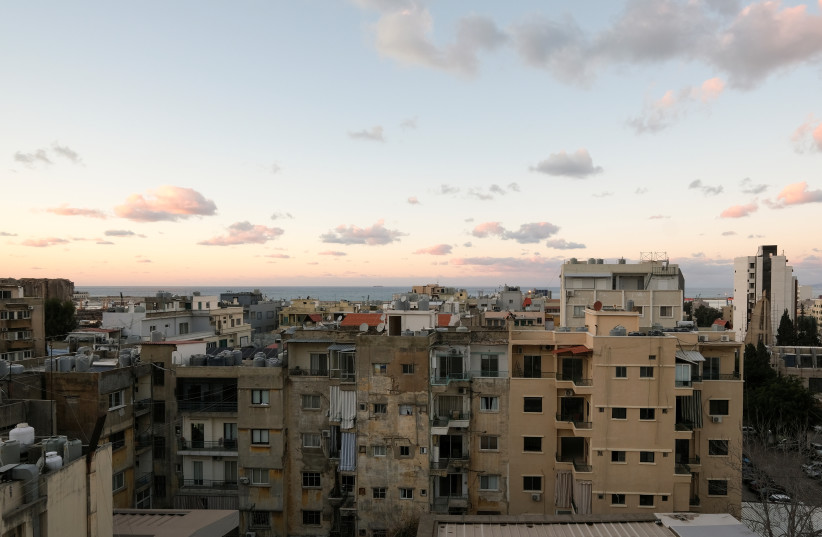Protests have broken out in Lebanon once again in response to the country’s deteriorating economy and the dramatic devaluation of the Lebanese pound. The International Monetary Fund offered aid to Lebanon on the condition of government reforms, which can only be fully enacted when a new president is elected.
For more stories from The Media Line go to themedialine.org
Over the last three years, the Lebanese pound lost more than 97% of its value against the dollar, and its value further declined by 15% on Tuesday. One US dollar is currently worth 140,000 Lebanese pounds. One week ago, a dollar was worth 100,000 LBP. Less than four years ago, in September 2019, a dollar was worth 1,500 LBP.
According to a report by Human Rights Watch, 80% of Lebanon’s population is living in poverty following the country’s economic meltdown in 2019. The economic crisis was further exacerbated by the Port of Beirut explosion in 2020 and general corruption and government mismanagement.
“You wake up in the morning having a specific amount of money to pay [for something], but by the time you arrive, it’s not enough anymore because [the currency] already lost a percentage of its value,” said Mohamad Radwan Al Omar, president of the Lebanese Assembly for Inclusive Development and representative adviser to Lebanon for MediateGuru’s Global Advisory Board. Al Omar told The Media Line that after an economic crisis, the economic situation in a country usually starts to improve. In Lebanon, though, this has not been the case. “With the central bank’s regulations, the Lebanon crisis plane has been falling down for almost three years now without crashing,” he said, adding that the economic instability “is much worse than the final crash.”

Lebanon's four years of economic downturn
During these past four years of economic downturn, Lebanon has experienced its coldest winters and hottest summer in recent years. The extreme weather led to mass suffering and even death for those unable to afford electricity or fuel for climate control.
“Our hospitals witnessed the largest number of deaths in the last few years because of lack of nutrition, colds, and more,” Al Omar said, noting that some died at home as they could not afford to go to the hospital or to pay for health insurance.
The current protests are being led mostly by retired members of the country’s security forces and other retired civil servants whose monthly pension allowances are worth less than $50.
On Wednesday, a peaceful protest of retired military and police officers demanding higher pay
was dispersed with tear gas by the country’s security services.
“When we talk about the private sectors, they all regulated their prices and income, maybe not enough, but still sufficient for survival,” Al Omar said. He explained that active military personnel receive funding from embassies like the US and Qatar and from the UN, in addition to their salaries.
Compared to private sector workers and current military personnel, military retirees were hit hardest. Most are unqualified to find new work and rely on their pensions, which have significantly diminished in value. What’s more, “they are no longer 100% fully covered for health insurance and other benefits either,” Al Omar said.
The IMF has offered the Lebanese government a bailout if it agrees to enact certain reforms.
Talks are ongoing between an IMF delegation led by Ernesto Ramirez Rigo and Lebanese
government officials. Ibrahim Kanaan, a Lebanese member of parliament and chair of the Finance and Budget
Committee, told The Media Line that the IMF and the Lebanese government have already come to some agreements during the talks.
“The two sides agreed on the need to elect a president for the republic as a starting point for restructuring the institutions and producing a homogeneous government team that has a clear road map for financial and economic rescue and implementation of the required reforms,” Kanaan said. “It is not only related to passing laws to launch the agreement with the IMF, but more importantly, the possibility of respecting and implementing them to restore local and international confidence, and thus investments.” Since October 2022, when President Michel Aoun finished his six-year term, Lebanon has had no head of state. The parliament is facing political deadlock and has not managed to elect a new president.
Chadi Nachabe, a researcher and public policy specialist based in Tripoli, told The Media Line that the IMF bailout will happen only when there is sufficient political will. “The major issue is how to divide the losses, in addition to [the need to launch] a financial investigation and other types of reform, which the Lebanese politicians don’t have the will [to
do],” he said. Nachabe said that the government needs to reach an economic compromise and to elect a
president. He predicted that a compromise “will lead to an IMF deal or other deal to inject the
Lebanese economy with foreign investment.” According to Al Omar, the Lebanese government has already started to implement some of the IMF’s conditions. They have begun to address the country’s electricity crisis, presented a new
development and reconciliation plan, and made a plan to reduce corruption. Al Omar noted that these reforms will be insufficient if the country does not manage to transition to a legitimate government, rather than a caretaker government.
“We need to elect a president as soon as possible so he can form a new legitimate government that has full authority and power to implement the IMF's conditions,” Al Omar said.
